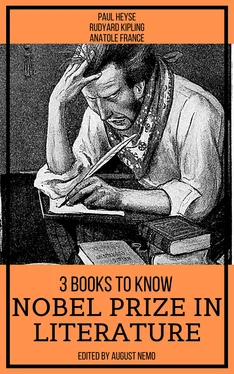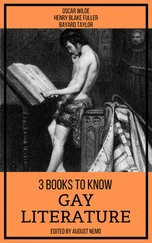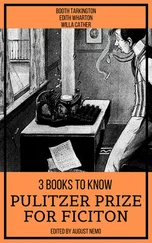The owner, an honest master shoemaker, had in the course of time accumulated money enough to have comfortably established himself in a new and far more elegant dwelling, but he had experienced beneath this sharply sloping roof, all the blessings of his life and though a man by no means given to sentimental weaknesses, he would have thought it base ingratitude to turn his back, without good reason, upon the old witnesses and protectors of his happiness. He had, at one time or another, laid his head in almost every corner, from the little attic chamber, where, as a poor dunce of an apprentice, he had, many a night, been unable to close his eyes on account of the pattering raindrops, to the best room on the first story, where stood his nuptial couch, when, after a long and faithful apprenticeship, he brought home, as head journeyman, the daughter of his dead master. But he was far too economical to permit himself to occupy these aristocratic quarters longer than six months, preferring to live in the second story, unassuming as it was—the little house having a front of but three windows—and there, two children had grown up about him. These first-floor apartments were rented to a childless old couple, to whom the owner would not have given notice to quit on any account; for in the white-haired old man he honored a once famous tenor, whom in his youth, he had heard and admired; while the little withered old woman, his wife, had, in her time, been a no less celebrated actress. They had already been pensioned twelve years, and, without song or noise of any kind, spent their quiet days in their tiny rooms, adorned with faded laurel-wreaths and pictures of their famous colleagues. These celebrities, according to the ideas of the proprietor, gave to his little house a certain artistic reputation, and if there were customers in the shop at noon when the old couple returned from their walk, he never failed to direct attention to them and with boastful assurance to revive the fame of the two forgotten and very shrivelled great personages.
On the ground floor was the shop, over which a black sign bore the inscription in gilt letters: "Boot & Shoe Making Done by Gottfried Feyertag." The shoemaker had ordered the large brown boot and red slipper, which had originally been painted on the right and left side, to be effaced, because it annoyed him to see them, when they no longer represented the fashion. He kept up with the times in his trade, and could not possibly alter his sign at every change of style. The shop, he generally left to the management of his wife he himself spending most of the day in the workroom, where he kept a sharp eye on his four or five journeymen. A narrow entry led past the shop into a small, well-kept courtyard, in whose centre stood a tall acacia-tree, three quarters of which had died for want of air and sunlight, so that only its topmost branches were still adorned with a few pale green, consumptive-looking leaves, which every autumn turned yellow some weeks before any other foliage. Here, in one corner, beside the pump, an arbor had been erected by the head journeyman, for the daughter of the house, when a school-girl; it consisted of a few small poles roughly nailed together, and now overgrown with bean-vines, which bloomed most dutifully every summer, but in the best years never produced more than a handful of stunted pods. A little bed along the so-called sunny side of the house contained all sorts of plants that seek the shade, and thrive luxuriantly around cisterns and cellars; and in midsummer, when the sun actually sent a few rays into the courtyard at noonday, the little spot really looked quite gay, especially if the fair-haired Reginchen, now a young girl of seventeen, were seated there reading—if it chanced to be a Sunday—some tale of robbers from a book obtained at a circulating library.
A grey, neglected back building, only united to the front house by the bare adjoining walls, had also two stories, with three windows looking out upon this courtyard; and a steep, ruinous staircase, which creaked and groaned at every step, led past the ground floor, where the workshop and journeymen's sleeping-rooms were situated, to the rooms above. On the night when our story begins, this place was suffocatingly hot. It was one of those evenings late in summer, when not a breath of air was stirring no dew was falling, and when only the dust, which had risen during the day, floated down in light invisible clouds, oppressing with mountainous weight every breathing creature. A slender young man, in a straw hat and grey summer clothes, softly opened the door of the house, walked along the narrow entry on tip-toe, and then crossed the stones with which the courtyard was paved. He could not help seizing the pump-handle and cooling his burning face and hands with the water, which to be sure was none of the freshest. But the noise did not disturb any one; at least nothing stirred below or above. He stood still a few moments and allowed the air to dry the moisture, gazing meantime at the windows of the upper story, which reflected the bright moonlight. Only one was open, and a large white cat lay on the sill, apparently asleep. The windows in the first story were all open, and a faint light stole out and illumined part of the trunk of the acacia with a pale red glow.
There was nothing remarkable in all this. Moreover, the thoughts of the lonely watcher beside the pump seemed to be far away from the narrow, oppressive courtyard, in some fairy garden, for, with a happy smile he sat down on a little stool in the bean arbor, and pulled to pieces a withered leaf, upon which he had first pressed his lips. From the open windows of the workshop in front of him he heard the loud snoring of one of the journeymen, who had found the room in the rear too close, and another seemed to be talking in his sleep. A smell of fresh leather, cobbler's thread, and varnish, penetrated to his retreat, and these odors, in connection with those coarse natural sounds, would have disgusted any one else with this Midsummer Night's Dream. But the youth in the straw hat could not seem to make up his mind to exchange the hard seat under the scanty foliage for his usual bed. He had removed his hat and leaned back against the wall, whose damp surface was pleasant to his burning head. He gazed through the roof of poles at the small patch of sky visible between the walls, and began to count the stars. The topmost branches of the acacia gleamed in the moonlight, as if coated with silver, and the opposite wall, as far as it was touched by the pale light, glittered as if covered with thin ice or hoarfrost. "Ah!" said the lonely man in the arbor, "life is still worth the trouble! True, its brightest gift, fair as yonder stars, is as unattainable as they—but what does that matter? Does not what we are permitted to admire, what we can not forget, belong to us as much, nay more, than if we had it in a chest and had lost the key?" The striking of a clock in a neighboring steeple roused him from this half-conscious, dreamy soliloquy. "One!" he said to himself. "It is time to think of going to sleep. If Balder should have kept awake to watch for me, though I expressly forbade it—"
He rose hastily and entered the house. When he had groped his way cautiously up the rickety stairs and reached the landing on the first story, he perceived to his astonishment that the door which led into the rooms stood half open. A small dark ante-chamber led into a larger apartment, lighted by a sleepy little lamp. On the sofa behind the table lay a female figure, still completely dressed, absorbed in a book. The light fell upon a sharply cut, sullen face, past its first youth, with very dark hair and heavy brows, to which an expression of power and defiance lent a certain charm. The reader's thick locks had become unbound, and she wore a plain summer dress of calico, which left her shoulders and arms bare. Not the slightest change of countenance betrayed that she had heard the sound of the loiterer's footsteps, and when he paused a moment in the entry and looked through the door, she did not even raise her eyes from her book, or push back the hair which had fallen over her forehead.
Читать дальше












